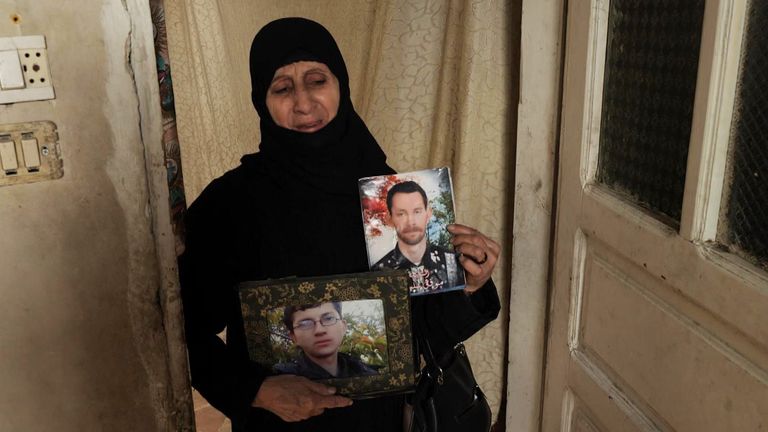Sarin nerve gas victims tell Sky News Assad should be punished for deadly attack on edge of Syrian capital
Victims of one of Bashar al Assad's worst atrocities are demanding he's hauled back from Moscow and put on trial for gassing more than 1,400 of their relatives.

Warning: This story contains details readers may find distressing
Assad's sarin attack on the Damascus suburb of Ghouta in 2013 was cold, calculating and nearly changed the whole way Britain and America handled his Syrian regime.
Now he has been toppled, there is an opportunity to bring the former president to justice, his victims hope.
Britain and America at first considered military action to punish Assad for the gassing in Ghouta and for similar attacks.
But cold feet on both sides of the Atlantic meant Assad got away with it and Barack Obama's infamous red line on Syria was not enforced.
You can arguably draw another line from that episode all the way to Putin's decision later to ignore Western threats over Ukraine.
Ghouta is less than 10 miles from Assad's presidential palace. He perpetrated one of this century's worst war crimes on the edges of his own capital.
Sarin is a nerve agent. It destroys the nervous system's ability to function. Victims cannot regulate their breathing, leading to asphyxiation.
It is a very nasty way to die. Its production and use has been banned worldwide since the 1990s.
'All around were dead bodies'
Wafiqa lost two of her sons and two of her grandsons that night in August 2013. She wept as she recalled the terrible events of that night.
"They brought them to me, telling me they were dead," she said. "They said 'come take them'... young men killed in a chemical attack."
"They were naked and what was coming out of their mouth was unbelievable. It was like soap frothing out of their throats," she added.
We went to the clinic nearby where most of the victims died.
People gathered to tell us their stories.
Kamel lost his two brothers and parents and was put into a coma after becoming engulfed in the poison. "I started seeing white around me, a thick powdery cloud of smooth, almost silky white smoke in the sky," he said.
Fadi arrived to find both parents, a brother and cousins dead. He told us the veins in his father's forehead had exploded as he died from the poisoning.
"We were in shock, we started crying. All around were dead bodies on the ground. People were in cars, the engines were still on, but the people were dead," he said.
'It was like the apocalypse'
We were taken down to the basement of the building and shown where the victims were treated and where the bodies piled up.
Footage taken that night shows scenes of utter terror.
At least 1,400 people died, many after being exposed to the nerve agent when they rushed to help others.
The bodies were taken here, and placed in five trenches, shoulder to shoulder, three bodies deep.
Kassam helped bury the dead.
He said: "It was like the apocalypse, we could not believe the way they were attacking us. We started putting entire families together. We tried to put the kids, the parents, and even the grandparents together."
The world failed to punish Assad for this and many other chemical attacks - as many as 300 are thought to have been carried out.
For his victims in Ghouta, there is one way to make up for that, bring him back to Syria and have him punished as he did so many others.
One said: "He should suffer and then be sent to the body crusher. And in the same way that our people were crushed and rivers of blood came from them, the same should happen to him."
It will take years for Syria to recover from the Assad regime, but absolutely crucial to that will be finding justice for his victims.
-SKY NEWS







